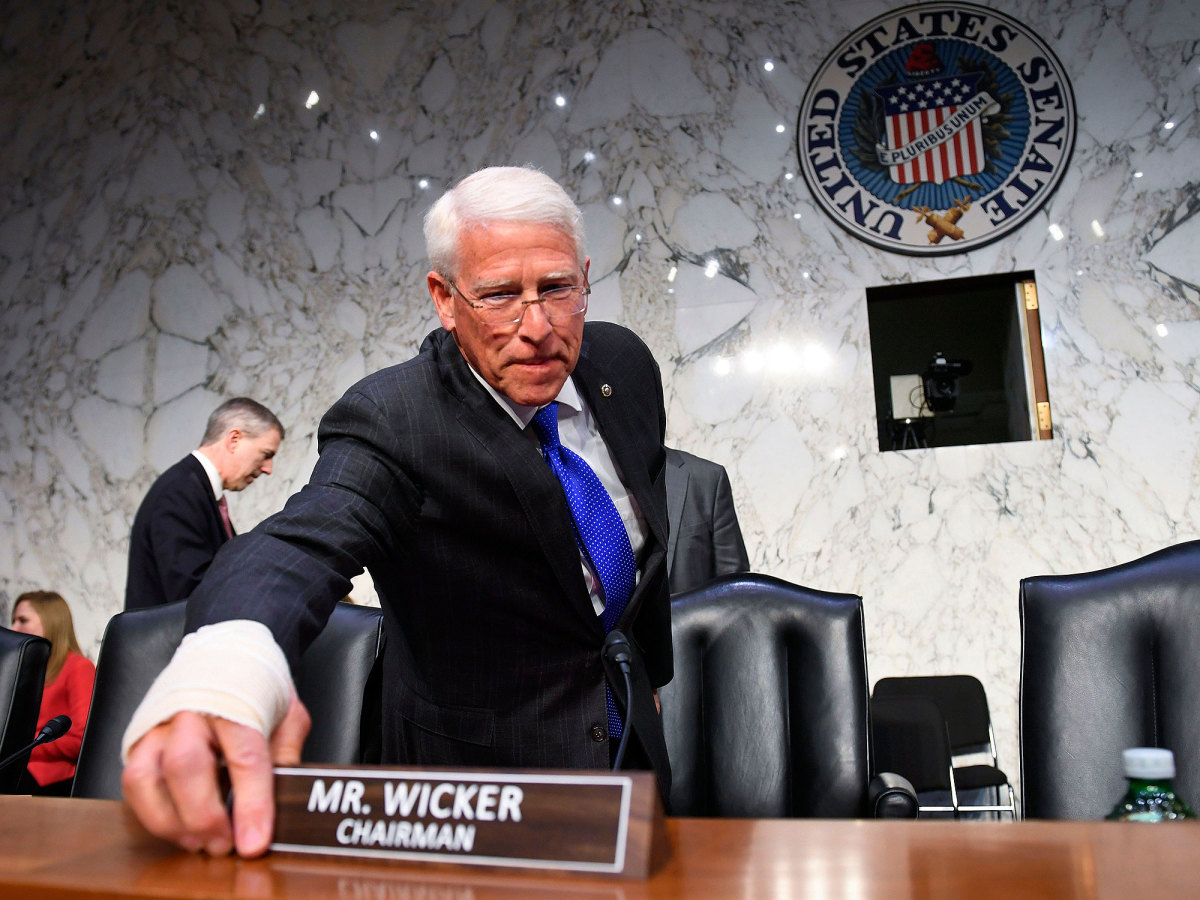In Significant Step Around NCAA Athlete Rights, New Name, Image and Likeness Bill to Be Introduced in Congress
WASHINGTON, DC — Congress took the biggest plunge yet on Thursday in its foray into college athletics.
Senator Roger Wicker (R-Miss.), the powerful chair of the Senate Commerce Committee, has introduced a bill governing name, image and likeness (NIL). The bill permits college athletes to earn compensation through commercial and endorsements deals, establishes the Federal Trade Commission to oversee such endeavors and grants the NCAA antitrust protection from legal entanglements. Details of the bill were provided to Sports Illustrated by a Senate committee aid earlier Thursday.
Wicker’s legislation is one of several NIL congressional bills that have already been introduced or are being drafted on Capitol Hill, but his bill is the most significant, as he is the chair of the committee that is presumed to hold jurisdiction over any NIL legislation. It makes Wicker arguably the most powerful man in Washington as it relates to NIL legislation. Committee chairs hold the power to pass through, strike down or hold up legislation, a quasi-gateway to the floor of the Senate.

As for the bill’s timeline, Wicker is expecting to introduce the legislation into the new Congress and immediately get to work on it, the committee aid says. But there could be a hangup. Wicker’s seat as chair could end if Democrats win the two Senate runoff elections in Georgia, giving them control of the Senate and its chairs and likely pushing pause on any NIL legislation.
While similar to a bill earlier this year by Rep. Anthony Gonzalez (R-Ohio), Wicker’s legislation provides move protections to the NCAA, including a key antitrust clause protecting the governing body from liability under competition laws, the committee aid told SI.
While the bill prohibits schools from “unduly restricting” athletes from NIL endeavors, it provides a path to allow universities to nix deals that conflict with their own endorsement contracts. The bill preempts all state NIL laws and, as is common with this type of legislation, restricts athletes from entering endorsement deals with several companies, including those associated with alcohol, tobacco, gambling or drugs.
The legislation assigns the Federal Trade Commission for oversight and enforcement, but allows the FTC to identify a nonprofit third party for more of the daily administration of NIL activities.
Though it creates a committee to examine health and safety issues regarding athletes, the bill is narrowly focused on NIL, a potential sticking point with Democratic leaders who believe a collegiate athletics bill should be expansive and wide-ranging. The bill has no cosponsors yet.
The legislation prohibits schools from classifying athletes as employees and sets academic requirements for athletes to meet to have NIL activities. Players must show “passing grades” in at least 12 credit hours, the aid says. Like the NCAA’s own proposal, the bill grants permission for athletes to use agents while requiring their contracts be disclosed to the third-party entity overseeing NIL.
Wicker’s bill is likely to meet harsh criticism from many Democrats who prefer a more open law without strong NCAA protections. The divide on this issue between Democrats and Republicans is a gap unlikely to close anytime soon.
The NCAA, meanwhile, is hurriedly crafting its own legislation that it expects to pass officially in January. SI obtained a copy of the NCAA legislation in October.
There is a sort-of deadline for federal legislation. Florida’s state NIL law takes effect next July. Without a universal rule governing athlete compensation, schools in Florida could quite literally play by different rules starting with the 2021 football season.
Seeking help from Congress, the NCAA’s attempt has somewhat backfired. It has opened itself up to deep inquiries from lawmakers, many of them not fans of the organization. Congressional members are seeking more reform within the association beyond NIL, something raised in one of four NIL hearings on Capitol Hill in June. In fact, Democratic lawmakers are crafting legislation that they refer to as an “athlete’s bill of rights,” which could potentially fold into an NIL bill.
